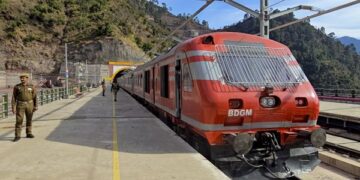
The G20 Agriculture Ministers’ Meeting at Hyderabad during 16-17 June, 2023 agreed on some important principles and set forth a rousing call for action on several fronts.
What is particularly interesting to note is the emphasis on digital strategies as a key instrumentality of achieving various other objectives central to the continuing “commitment to food security and nutrition for all, through the development of inclusive, resilient, and sustainable agriculture and food systems.”Herein lie important imperatives and opportunities for India in particular.
Seven specific “Deccan High Level Principles” are spelt out in The Outcome Document that complement various ongoing responses to global food security crises. Among these, Principle 6 underlines the need to Accelerate Innovation and the Use of Digital Technology. Principle 7 emphasizes the importance of Scaling-Up Responsible Public and Private Investments in Agriculture including investment in digital infrastructure.
The Call for Action emphasizes that in today’s world, digitalization and inclusivity are critical for agricultural transformation. This in turn necessitates appropriate digital infrastructure, universal broadband internet access, digital rights and rules on data access, usage and privacy in this field. The declaration makes a commitment to collaborate with all stakeholders to strengthen capacity-building efforts, including dissemination of digital tools and technology and promoting its adoption by farmers. It further commits to foster international cooperation through exchange of experiences and insights.
The Call for Action recognizes the need for adequate public and private financing of digital infrastructure to help drive innovations in agriculture using emerging digital technologies. It underscores the need to increase responsible investment in start-ups, incubators, and accelerators with an emphasis on enabling entrepreneurship in agriculture and along agri-food value chains.
I had the privilege of moderating the Panel discussion on “Connecting the Digitally Disconnected: Harnessing the Power of Digital Technologies in Agriculture” at this event. The panel included the US Under Secretary for RD, the DG, ADB, Manila, senior representatives from BMGF Washington and the Indian Ministry of Agriculture in addition to 3 exciting agritech startup promoters from India.
The potential for leveraging the enormous power of AI is nowhere more evident than in the agriculture sector. The opportunities in agriculture are vast. These include:
- Optimizing usage of inputs, including water usage
- Improving agronomic practices
- Enhancing access to markets
- Improving advisory extension services
- Reducing food loss and wastage
- Enabling climate adaptation and mitigation
- Protecting and regenerating natural resources
Many dots comprising diverse stakeholders, data sets and technologies need to be connected for the transformation of the sector including: Land holding and encumbrances thereon, choice of crop, input needs and suppliers, water resources, soil and agro-climatic data, banks and credit institutions, crop insurance, satellite data, market yards and market information, AI tools for early detection of pest attacks, customized AI-enabled advisory services in local language equipped with voice, video and text communication, leveraging mobile telephony, etc.
Eco-system level, farmer-centric, strategic thinking must therefore underpin the digital transformation. For this, a distributive, adaptive, and open digital ecosystem is an imperative. India is fortunate to have all the three ingredients needed for this transformation:
- A thriving, global IT industry with developed country capabilities in AI and new and emerging technologies such as IoT, big data, drones, block chain, intelligent systems, robotics, etc.
- A vibrant startup eco-system brimming with young, new age entrepreneurs who are devising highly innovative, hugely beneficial, profitable solutions in various social sectors, including agriculture and
- A globally unparalleled track record of setting up population scale Digital Public Infrastructure (DPI) such as Aadhaar, UPI, ONDC, with others at a nascent stage in healthcare, agriculture and other sectors.
Three impressive agri-tech startups that were on the panel best illustrate the scope, benefit and scale of opportunity for India and for the private sector in this nascent revolution that is just unfolding in India and elsewhere. Absolute aims to use AI to capture and apply nature’s inventive problem-solving and intricate communication capability honed by billions of years of evolution. Waycool has established a specialized platform that supports commerce in the sector. Sammunati provides solutions that enable farmers to maximize their financial returns by choosing the right time and place to sell their produce.
In the context of the prominence of digital strategies in the Outcome Document, it is gratifying to note that it acknowledges India’s focus on making digital infrastructure inclusive to make it a catalyst for socio-economic transformation of the agriculture ecosystem and farmer centric public and private digital innovations.
India can become a global leader in adapting new and emerging technologies for transforming the agriculture sector. The Government needs to play a carefully calibrated but pivotal role: establishingstandards, introducing necessary policies and facilitating critical DPIs. The goal is to ensure coherence, integration and equity while channeling private sector energy and initiative to drive digital transformation of the sector.
(The author is the Chairman, Centre for the Digital Future, Former Secretary,
Depts. of Electronics, IT and Telecom & Former President, NASSCOM)




